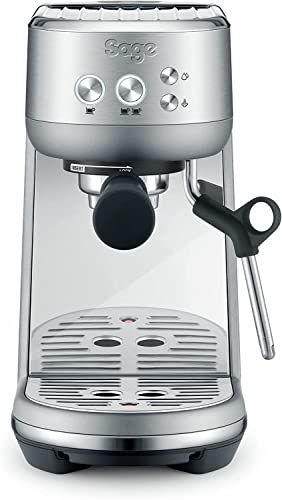What to Look For
bean to Cup espresso machine in a Commercial Espresso Machine

There are many aspects to consider when buying commercial espresso machines. The type of espresso machine right for your cafe will depend on the volume and the purpose for which it is used, and barista's abilities.
Double boilers allow you to steam while brewing. It also reduces recovery time between pulls. Proportional-integral-derivative (PID) temperature control manages on/off cycles for optimal boiler temperatures.
Productivity
A commercial espresso machine can handle a larger volume of coffee than an home machine. A domestic espresso machine may not work in a professional setting.
A commercial coffee machine of high-end quality can serve up to 100 cups per hour in peak times. This can be an enormous help in busy workplaces,
bean To cup espresso machine since it will stop employees from having to wait around to get their coffee.
A coffee maker can help workers bond. Oftentimes teams of people will make a habit of getting coffee for each other, and this can help encourage teamwork and collaboration in the workplace. Having a designated space for coffee can aid new employees in feeling at comfortable in the workplace, removing any barriers between them and senior staff members.
Commercial espresso machines are available in various sizes to suit a variety of requirements. Some models are entirely automated and others have the ability to prepare espresso shots beforehand so that operators do not have to guess the right size of the shot. This is especially important for businesses with untrained baristas as inaccurate shots can significantly affect the intensity and flavor of espresso that is brewed. It is also best to purchase commercial espresso machines made of ethically sourced products that benefit the communities where coffee beans are cultivated. This will guarantee a high quality product that will minimize the negative impact on the environment.
Safety
Espresso machines are huge heavy pieces of equipment that can cost the same as a brand new compact car. The machines are designed to create hundreds of shots and drinks in a single day. Commercial espresso machines can present particular health and safety risks to employees due to their high volume.
Remember that commercial espresso machines tend to utilize warm water. This can trigger the growth of bacteria. Inefficiently maintained machines that are not cleaned and descaled regularly can accumulate spent espresso. This could cause it to turn rancid, and potentially cause illness if consumed by customers. A commercial espresso machine with a steam wands that are not sealed may let bacteria grow in the milk frothing process.
When selecting a commercial espresso machine, it is important to think about the kind of drinks you plan on serving and the amount of cups per hour your space can accommodate. You'll also want to find an espresso machine with automated features, which makes it easier and faster to serve your customers their preferred coffee drink. In addition, look for a warranty that includes parts and labor to ensure that any technical issues are resolved quickly and efficiently.
Energy Efficiency
The power requirements of commercial espresso machines are considerably greater than home models. This is due to the fact that professional espresso machines have more powerful frames and larger boilers to accommodate the many group heads required for normal cafe production. These machines also operate at a much higher temperature in the ambient and are often located in indoor locations (such as cafes or restaurants) where the electronic components can quickly overheat, resulting in the machine failing.
The boiler of an espresso machine for commercial use heats and stores water that has been pressurized by an electric pump. This water is used to make steam and brew espresso. The boiler is comprised of several copper tubes that are heated by electric elements. When the brew sensor determines that the water level is at the desired level the solenoid valve is opened and fills the boiler with new water. The heating element is then shut off.
There are four types of espresso machines that are distinguished by how they are able to brew and steam the water: The TB (brewing only), TX (twin boilers), HX, and DA (double automatic). TB and TX machines offer stable brew temperatures, whereas DA offers rapid steaming using a single boiler. Many cafes are converting to HX machines since they have been shown to offer the best of both worlds in terms of steam and brew temperatures.
Maintenance
Like cars that require regular tune-ups, commercial espresso machines require maintenance to continue working smoothly and efficiently. If you take care of your machine, you will enjoy a more flavorful coffee and will last longer.
It's an everyday ritual to clean your espresso machine, but you should pay attention to the parts that need an extra clean. There's bound to be leftovers from milk and coffee grounds products inside the machine which could disintegrate various components over time. Regular cleaning can prevent this from happening and helps keep your espresso machine functioning at the
best espresso machine it can.
Most commercial espresso machines require descaling every three months. This process requires a few more steps as opposed to normal cleaning. You'll need to go through your manual to ensure you adhere to all the guidelines. The solution used to clean the tank dissolves the scale. You'll need a tank bean to cup espresso machine,
a cool way to improve, complete this task. In certain models there may be a container underneath the coffee spouts. Follow the instructions on your specific model.

A water filter change is a further maintenance task. It's easy to forget however it's important not to accumulate mineral deposits. Also, you should look for calcification in the spray head, which is difficult to eliminate.